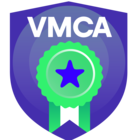Hi Everybody!
Today it is my great pleasure to bring in someone who needs no introduction:
Veeam Vanguard, Veeam Legend Michael Paul
Geoff: Welcome Michael, So First Question: When and why did you start working in IT?
Michael Paul:
I started working in IT whilst I was in college, after doing a lot of repair jobs whilst at school. I dived into the deep end and was a sole sysadmin without any prior experience, a huge amount of watching videos and studying, but it paid off and it allowed me the ability and freedom to ask “what’s this” and then go find out. I was studying software development at the time and my course mandated some skills in databases, networking, and security, so I was walking into the job knowing the OSI layer, understanding routing, basic database querying, and how programs work. This last point is a key skill I would recommend to anyone wanting to understand more about computing, try learning to write a few applications and then you get a sense for how code is likely to go wrong. These skills translated really well into my first job and then I kept pushing myself into new challenges, by the time I’d finished at university I had 4 years experience as a sysadmin under my belt and I kept going with it!
Geoff: Ok that is very interesting. That kind of underlines my feelings as well that studying can be seen just like an investment. So we can say that you are an Architect with a solid foundation. There are others who just by fate fell into the IT profession and feel like they are always playing catch up. What would you recommend to folks who might have gaps in their learning keeping in mind the challenges involved with work life study balance?
Michael Paul:
Absolutely, learning is a key part of life, and learning takes on many forms. To some people only “formal training” such as a classroom is learning, but self-paced study such as reading documentation, lab work and hands-on in your job are all examples of learning.
To those people who feel like they’re always playing catch up I would say, me too! It’s impossible to know everything. But I remember when I worked at Apple they had a great saying “no one can know everything, but together we can”. Leverage your peers and third party partners to supplement your knowledge. To those struggling with a work/life/study balance I would say this: If your employer isn’t investing work time into attaining the skills you believe you need for the job, then they don’t deserve to benefit from the skills you gain. So if you are going to invest your own time in studying, that should be an investment in yourself, not in your company. So make sure you’re learning something you’re interested in and will help you with where you want to go in life. I was guilty of this because I have a genuine interest in technology, so if I learned a new product, I tried to keep up to date with every new blog post and change, it’s not healthy or sustainable, once I acknowledged this and slimmed my list, I felt like I was in a better mental health position because I wasn’t pressuring myself to learn everything.
Geoff: You have touched on another great point, obsessive work/study. I think the key word you used was "Balance". Balance is the key to not falling down! Before we turn our attention to Veeam, I want to ask you about what is on a lot of IT professional's minds these days, and I would guess especially on the minds of IT Architects. Should we fear AI? Is there a possibility that Management, forever in the search for higher profits will deem it plausible to dump the expensive Architect for Artificial Intelligence?
Michael Paul:
In my opinion, no. We shouldn’t fear AI, but we should see it for what it is, a tool that can be great or wildly inappropriate depending on the circumstances. For starters, AI that is publicly accessible is not suitable for sensitive data, and private AI instances that meet this criteria require their own infrastructure stacks which require, you guessed it, architects! IT is a constant evolution and we see occasional technologies that act as a catalyst for sudden change. Remember when solid state storage was going to be the death of spinning disks? Or cloud destroying the private datacenter? There will inevitably be architect job losses to AI, and architect jobs will appear elsewhere related to AI. But the best approach is to have some awareness of what AI can achieve, even if it’s not directly into your remit. So when you tackle your next problem, you can see if AI meets your needs best.
Geoff: Again I sense here a balanced and wise approach! Ok now time to turn our attention to Veeam. When did you start using Veeam and what is your favorite feature? What was the most interesting backup design that you have performed with Veeam?
Michael Paul:
I started using Veeam around 2013, when I joined a business that was already using Veeam, I believe it was v6 at the time! Scary to think that was over a decade ago… I make no attempt at hiding my favourite feature is SureBackup. Aside from organisations not having anywhere to test, another long critique of mine is having dev/test environments that are “nearly” live but inevitably have some differences. The ability to work with a clone of your live environment is amazing. It is also a massive part of any planned changes where possible for me. I upgraded an entire Exchange environment in isolation, hit multiple blockers that would’ve blasted a nice whole in my production environment, and got to rewind and try again. Once I’d tested the whole path forwards I copied my steps on the live system and everything went exactly the same! The most interesting backup design for me was the first time I used object storage for EVERYTHING end to end. Agents, NAS, VMware etc. It made me re-evaluate what I thought I knew about data paths between components and I certainly got my fingers burnt with some variances between how Veeam handles block and object storage. But it also meant I could backup a customer’s global IT footprint without any upfront expenditure, all OpEx!
Geoff: SureBackup was revolutionary in the true sense of the word. A transition of backup from being purely reactive to active has changed the game. Ok maybe one last question. I know it is impossible to predict the future but people always turn their gaze to thought leaders like yourself for predictions. Where do you think IT is going as a whole and how do you see the role as Backup Architect evolving going forward?
Michael Paul: I see the role of backup architect moving closer into the security remit. Historically data protection administrators have sat as either an independent island, or aligned to a storage/data team. The reality is that backups provide an isolated state to review when leveraging Veeam DataLabs, and security teams are starting to become more aware of the functionality this unlocks.
Aside from security solutions which are typically compromised and disabled within an attack chain, backup solutions are the next best bastion to overlook an organisation’s estate. One key reason is there are data points that security solutions can’t reside on due to a lack of compute resources, such as SaaS applications like Microsoft 365. A backup solution would be able to detect data encryption or mass data change typically associated with a cyber attack, and report this back.
In summary I see Data Protection solutions becoming a more integral part of the “Blue Team”’s toolkit, and by extension I see the Data Protection Architect becoming an extended member of the Blue Team as well.
Geoff: Thank you very much Michael. Great having you here in the Study Hall. We learn from each other and especially from those who have already walked the path that we intend on taking!
Next week Meet Chris Childerhose





